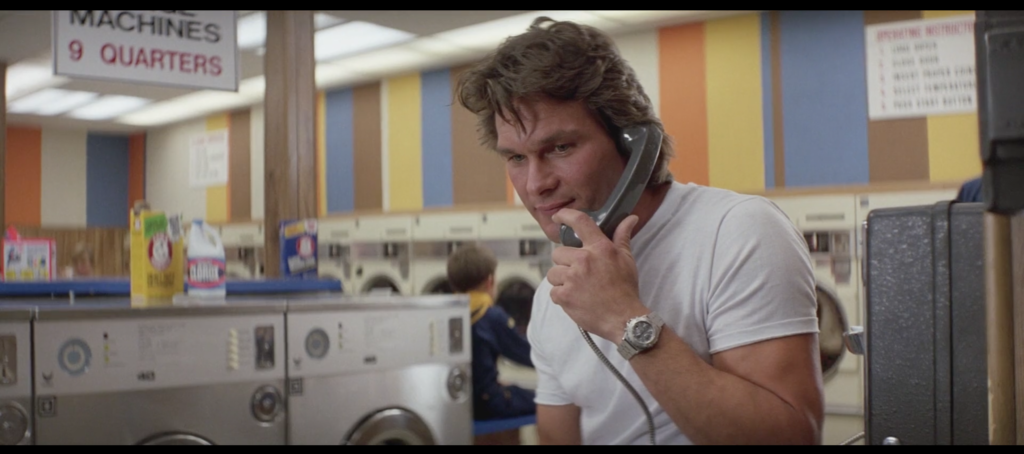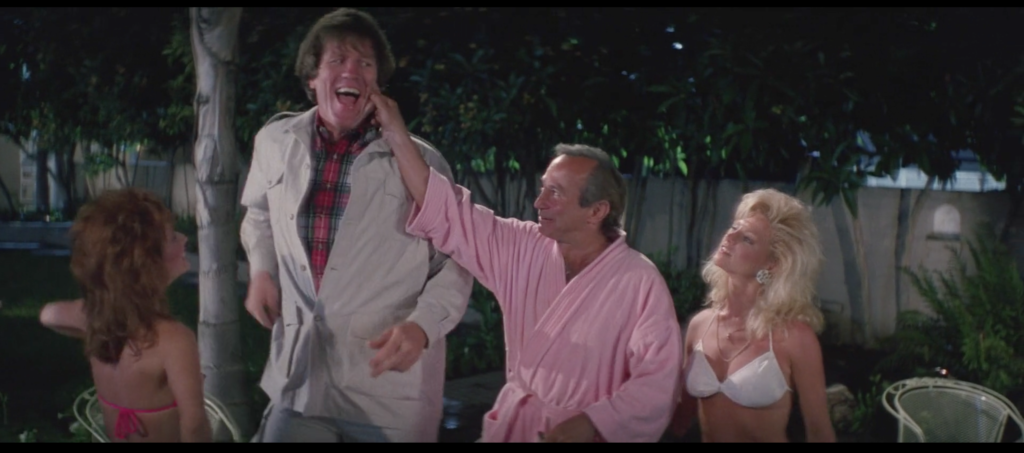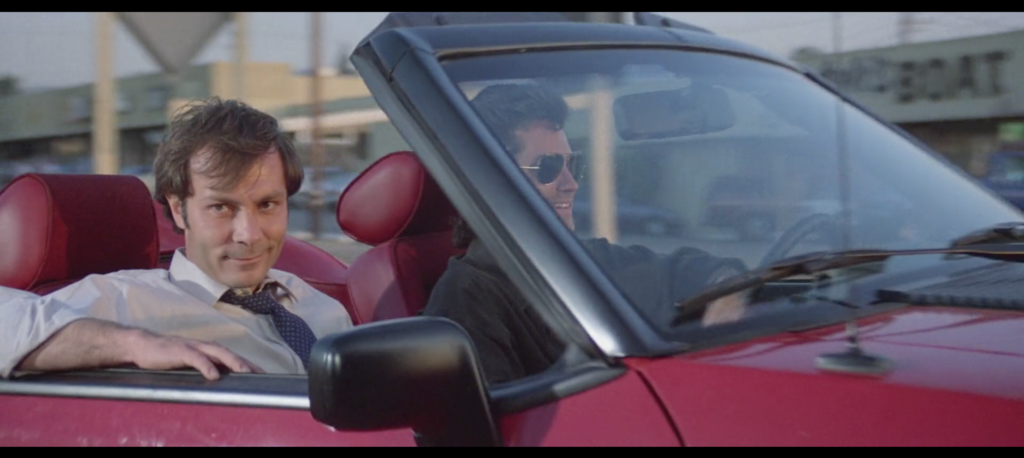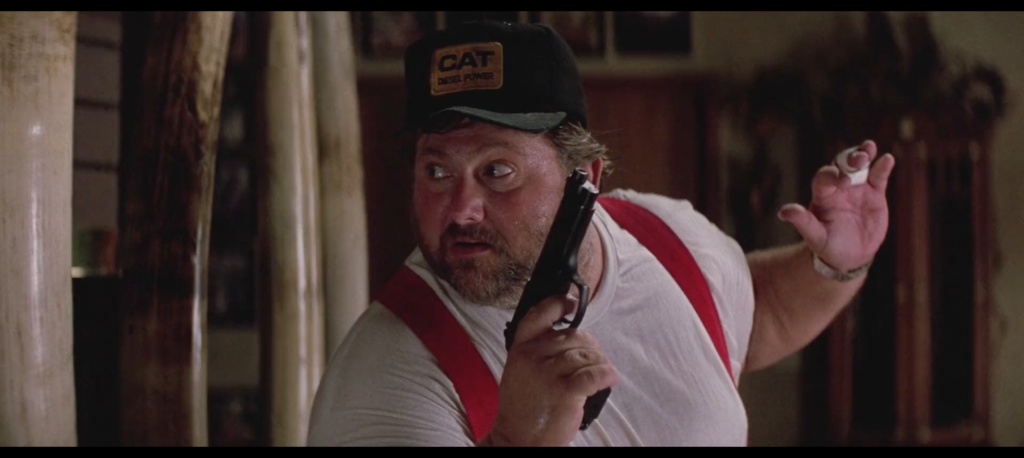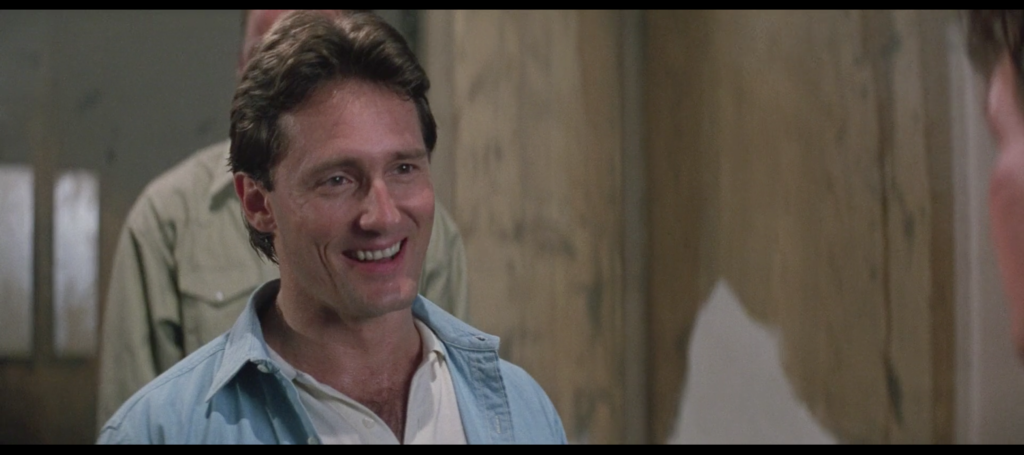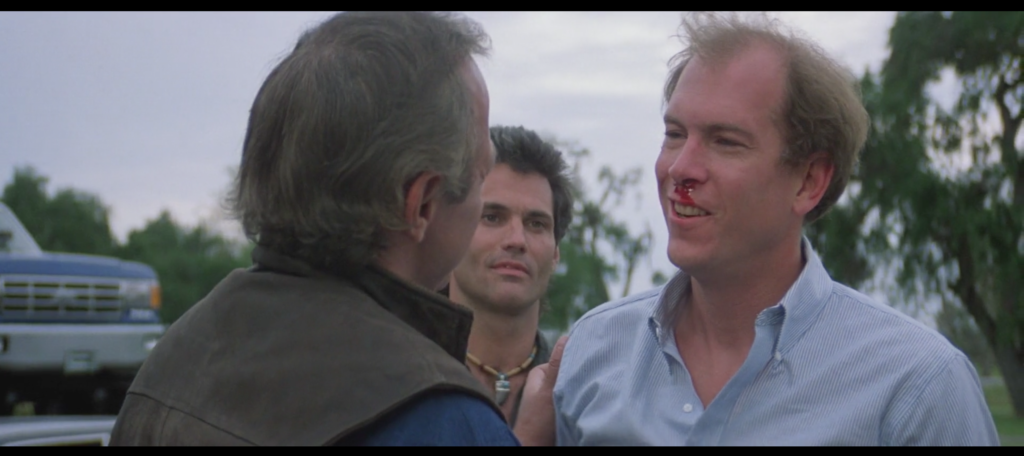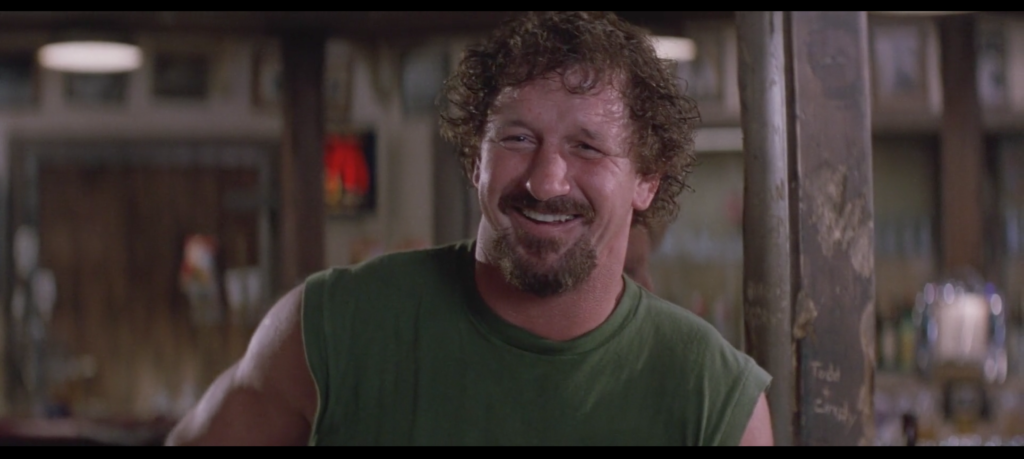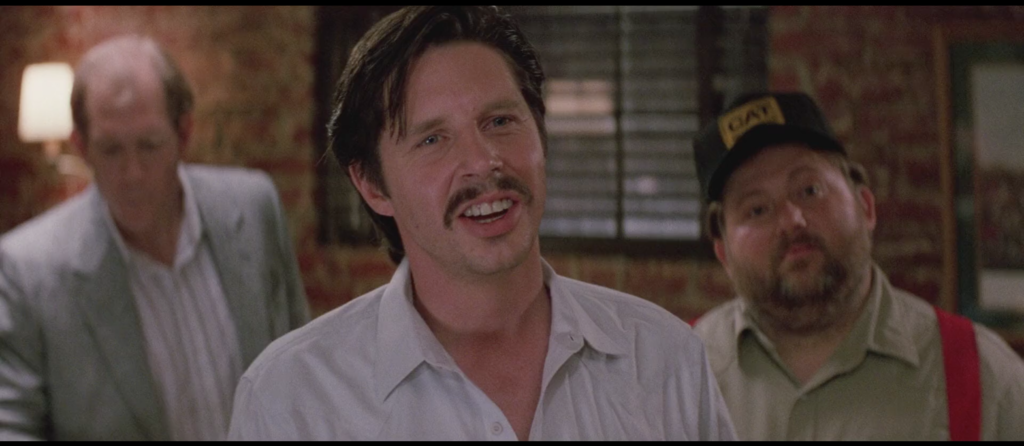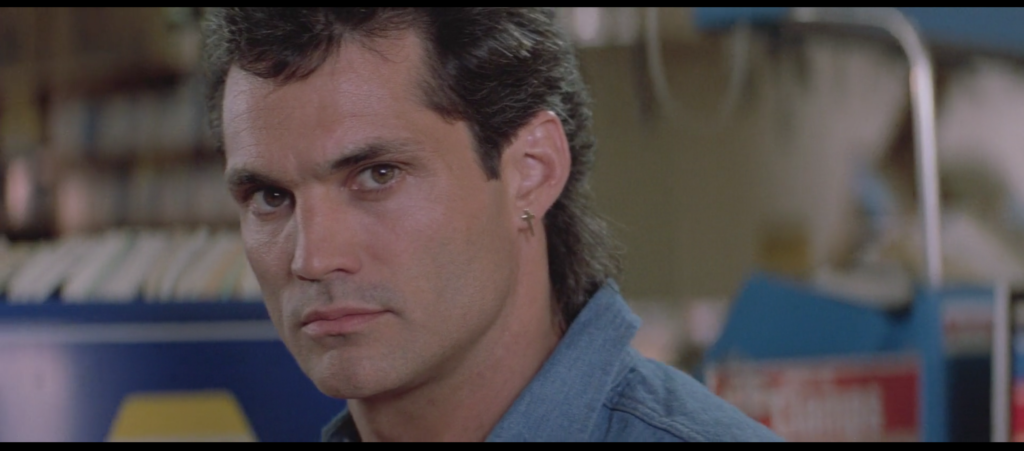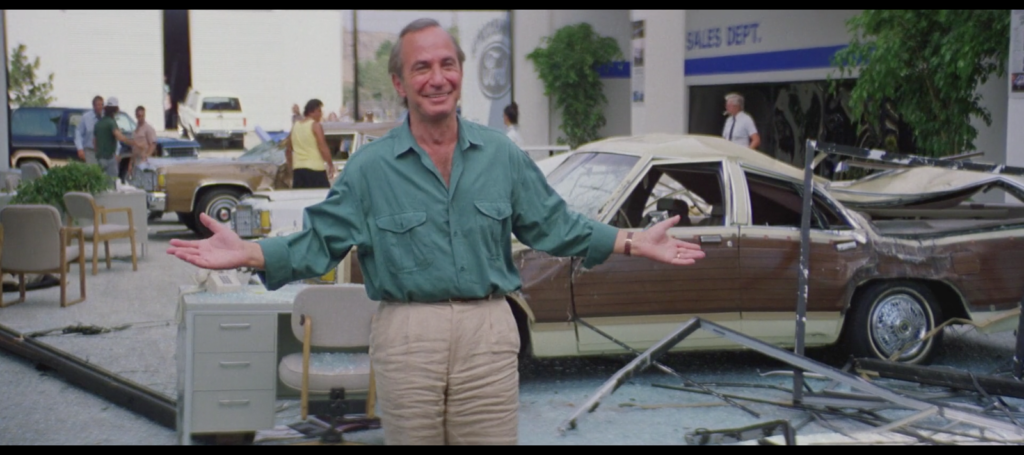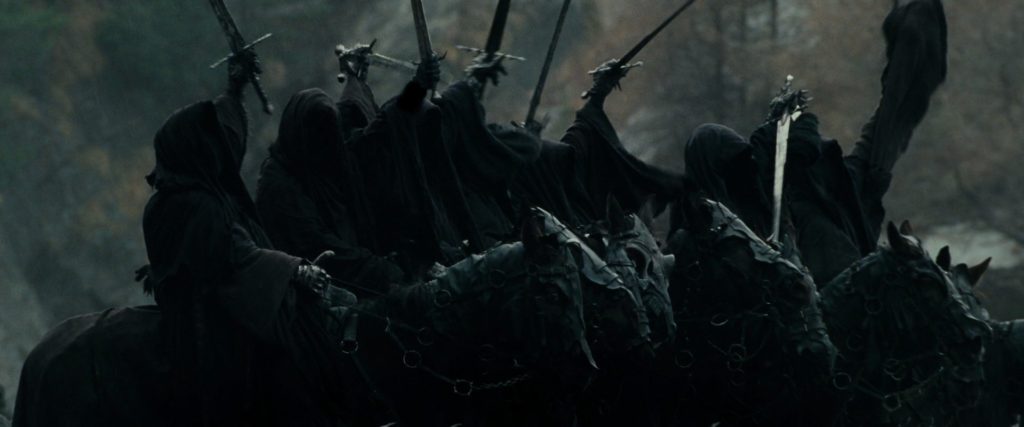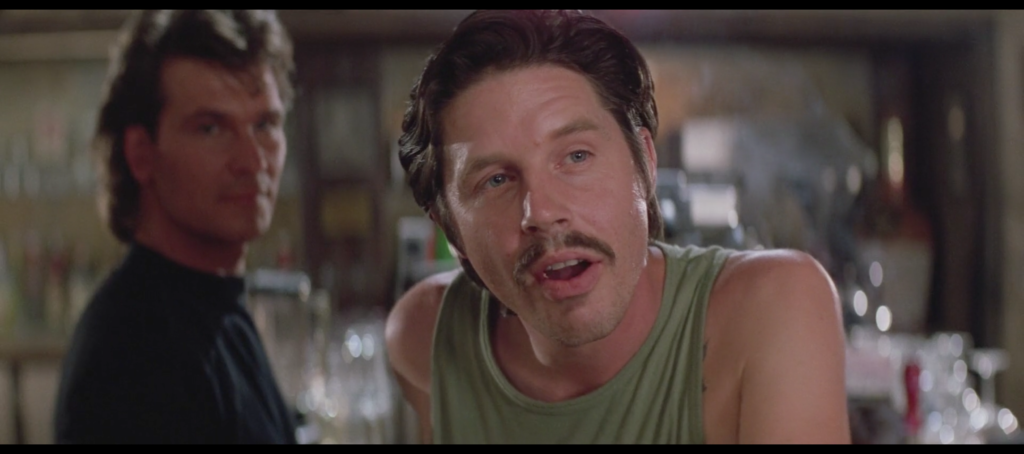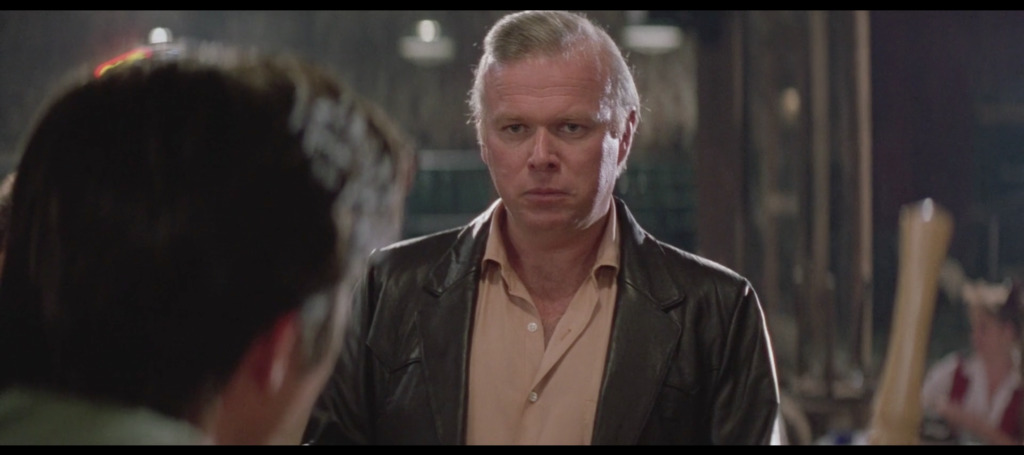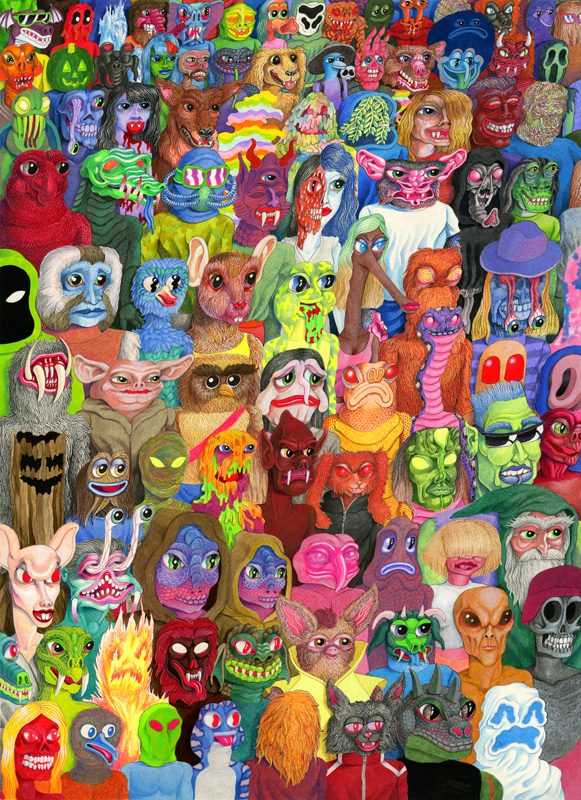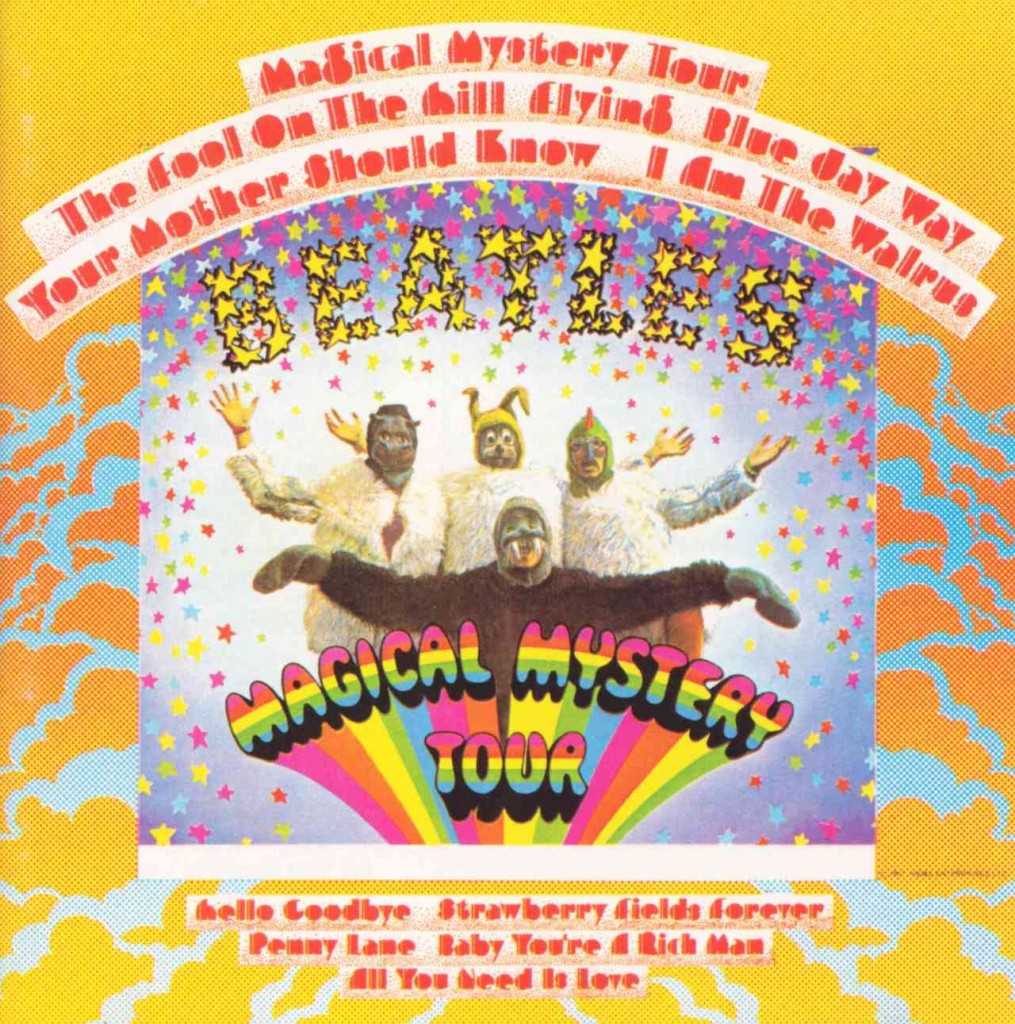Posts Tagged ‘the beatles’
114. The Nine
April 24, 2019Nine quarters, says the sign that appears in the middle of Dalton’s pivotal conversation with Wade Garrett, right after he blows off the threat presented by Brad Wesley. Right away we can see that reality has warped a little, that a glitch in the matrix has appeared. As well it might: Dalton has just underestimated his opponent and failed to expect the unexpected, a violation of his own First Rule. And for that, a price must be paid.
But what if there’s more to it than that?
It was not I who set myself on this path, but reader @RoddySwears. It was he who noted the numerological significance of the established price. Nine quarters. Two dollars and twenty-five cents. $2.25. 2 + 2 = 9.
What could such a specific prophecy mean?
Then I realized.
The Nine are abroad.
054. The Ballad of Pat & Tilghman
February 23, 2019Standing in the bar down in Jasper
Sweeping up the eyeballs for thrills
My bartender’s Pat
Hey, at least I have that
Until when Dalton said he’s skimming the till
Christ, you know it ain’t easy
You know how hard it can be
A man named Brad Wesley
He’s gonna crucify me
Finally found myself with some money
Thought I’d fix the place up just right
Dalton helped me to learn
That my man Pat McGurn
Costs me about a hundred-fifty a night
Christ, you know it ain’t easy
You know how hard it can be
A man named Brad Wesley
He’s gonna crucify me
Pat McGurn’s the son of Brad’s only sister
Canning him’ll take me some nerve
I may own the bar
That only takes me so far
Cuz Mr. Wesley owns the liquor I serve
Christ, you know it ain’t easy
You know how hard it can be
A man named Brad Wesley
He’s gonna crucify me
Wesley takes my money almost every day
“Jasper Improvement Society”
It’s his town he said
Oh boy when he’s dead
The killers will be four men who are old (Tink)
“Take the train, consider it severance”
Pat looks at me raising his brow
Incredulous Pat:
“I didn’t hear you say that”
I stammer “Well, I’m sayin’ it now”
Christ, you know it ain’t easy
You know how hard it can be
A man named Brad Wesley
He’s gonna crucify me
Pat McGurn’s my headcanon lover
Firing him makes me start to pout
His voice is a purr
When he asks “are you sure”
Takes all I have to whisper “get out”
Christ, you know it ain’t easy
You know how hard it can be
A man named Brad Wesley
He’s gonna crucify me
A man named Brad Wesley
He’s gonna crucify me
‘Dreaming the Beatles’ Author Rob Sheffield on the Fab Four’s Unstoppable Pop
May 17, 2017I wonder if that longevity has something to do with another key element of the book — that The Beatles were “a pop group” and “a rock band,” and you talk about them as both.
Sheffield: The fact that they play in both of those leagues is one of the really weird things about them. There’s something utopian about the way they float over that distinction. Their original concept of “rock and roll,” which is what they called it when they were just starting out — it’s amazing how expansive it was. They were really into playing blues, R&B, country, American rockabilly, corny cheesy show tunes, upscale New York professional-songcraft stuff like Goffin and King, girl-group stuff.
It was controversial, even at the time when they were playing in Liverpool. Paul has this funny story in his book about how the other Liverpool bands thought The Beatles were good at playing blues covers, and that it was lame that they wanted to play pop stuff. Mick Jagger was saying, “We were blues purists. We like pop stuff, but we would never do it onstage.” But [Motörhead singer and bassist] Lemmy talked about seeing The Beatles at the Cavern Club, and he was like, “That’s the most ferocious live band I’ve ever seen.” The idea of a 16-year-old Lemmy going to the Cavern for the lunchtime show, and all these office girls who are there with their hair in rollers, dancing around their handbags.
It’s funny that the definitions of rock and pop became more exclusive and narrow-minded since then. The Beatles were beyond that from the beginning. Their conception of rock and roll was so wide-ranging and so imaginative that there was something revolutionary about it. They would try playing anything new: Motown, Carl Perkins, The Music Man, all on the same record or in the same set. They were very self-consciously provocative about that. Even [girl groups like] the Marvelettes or the Shirelles or the Chiffons. [The Beatles] liked singing in that girl-group style of vocals together. Like, no, The Rolling Stones did not do that.
It’s my great pleasure to make my MTV News debut by interviewing Rob Sheffield about his tremendous new book Dreaming the Beatles, the best thing about the band I’ve ever read. It sidesteps the canonicity argument completely and talks about how the Beatles’ presence in pop culture didn’t just end with their amazing eight-year run, but continued to grow and change and get even bigger among different groups of kids and musicians every decade since. Absolutely stellar work, and I’m so glad I got to pick Rob’s brain about it.

